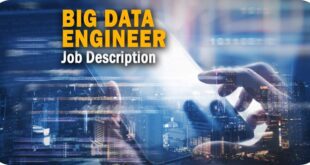Unconventional Path to Success: Getting Started as a Data Scientist Without a Degree
Data science is still one of the fields with the fastest growth rates across many industries. For a variety of purposes, including customer targeting, supply chain management, product development, and much more, every business requires precise data. However, did you know that a bachelor’s degree is not necessary to become a data scientist? Continue reading to find out how quickly you can get hired for an entry-level position in data analysis.
How does data science work?
Data science makes sure that information is correct, timely, and clean so that insights can be drawn from it. Those insights serve as the basis for significant business decisions. Numerous issues in the tech, retail, and healthcare industries can be resolved with data analysis. Data scientists are still in demand because of this.
To find patterns and trends in data, data scientists employ business acumen, mathematical understanding, and programming expertise. They prepare data, analyze it, write algorithms, make data visualizations and stories, and present their findings to managers of the company and other colleagues.
What degree is required to become a data scientist?
Commence with a data science bootcamp conducted online.
Is it possible to work in data science without a degree? Indeed! You could educate yourself in the fundamentals of data science, such as Python programming. However, the correct boot camp can assist you in honing in on the appropriate resources and languages, responding to your inquiries promptly, offering peer support, and offering structure and accountability. “Being able to talk with professionals quickly became my favorite part of the learning,” says Rachelle, a TripleTen graduate. It becomes more of a two-way conversation after you do that frequently.”
Those code reviews turned into a means of demonstrating my advancement.
Rachelle is a Triple Ten graduate.
Spend time studying and practicing.
You will acquire the necessary job skills if you attend the right boot camp. You should use those skills, though, before you look for your first full-time job. Doing an externship is one way to do that. Like internships, externships do things that companies actually do and give you real tasks, like helping to build an app. They want to make the connection between student projects and work at real companies. As long as you do not have to do them for the boot camp, they can help you build your resume and portfolio and learn what a data scientist does most of the time.
Build a strong portfolio.
In addition to an effective resume, a portfolio is critical to making you stand out as a candidate. A resume lists your work history, but a portfolio shows how you apply your skills. A portfolio can showcase school assignments, pro bono work, or hobby projects; it doesn’t have to be paid work. But it should show your skills in action. Pick your favorite projects, then write a reflection on the problem, how you solved it, and why you chose to solve it that way. Then, add a link to your portfolio on your resume and in your LinkedIn profile.
Connect and network
Now that you’ve learned and showcased new skills in a portfolio, you’re ready to start looking for work. But only focus some of your energy on filling out online applications. Start making personal connections, too. You can go to conferences, local meetups or talk to friends of friends. When she started looking for full-time work, TripleTen grad Yuliya reflected: “I tried to be present everywhere—I joined Facebook and LinkedIn groups, looked for opportunities, and messaged my friends who worked at startups.” Eventually, she got a recruiter message and was hired at Lululemon, most likely because her “activity made [her] profile more visible to others.” And since many tech companies offer referral bonuses, it never hurts to ask a connection to recommend you for an open role.
Volunteer or participate in competitions
Entering a competition is a fantastic (and fun!) way to build out your portfolio.
You don’t have to be a pro to enter a competition; there is a wide variety for every skill level! Prioritize competitions where you enjoy the challenge over the ones you think you can win. Try looking on platforms like Kaggle and DrivenData to find suitable events. Not only can you win prizes and enhance your portfolio, but you can also impact fields from education to climate change mitigation.
Another way to build your portfolio and expertise is to offer your skills for free. Sites like Datakind and Catchafire connect data scientists with nonprofits who need help. Remember to ask for a LinkedIn recommendation when you complete a project.
How long does it take to become a data scientist?
The great news is that you don’t need a computer science degree to become a data scientist. TripleTen’s data science boot camp takes eight months part-time. If you add extra time to work on additional projects and hone your skills, you could still find a data science job in under a year.
real success stories of our graduates who became data scientists
How did other TripleTen grads become data scientists without a traditional degree? Here are two stories to inspire you:
How Gor leveled up to a dream role at Amazon
After Gor landed a logistics analyst role at Amazon, he was thrilled to be at his dream company, but the role didn’t excite him. He wanted to do more with data, so he set out to learn Python independently. But he says, “After learning Python for a few months, I realized I wasn’t going fast enough, and I wasn’t learning as much as I wanted. That’s when I decided to join a boot camp.” The boot camp structure motivated him, and in-depth conversations with instructors helped him master the material. Upon completing the bootcamp, Gor landed a data analyst role at Amazon—finally, a dream role to match his dream company.
How Rachelle went from tourism sales to Spotify
When Rachelle was laid off from her role in tourism sales, she decided she might as well try something new. She was already interested in data, and a 6-month boot camp landed her an entry-level job. But she needed to level up if she was serious about her new career path. That’s when she found TripleTen. She was surprised by the rigor of the boot camp but was grateful for the active support. And the rigor is what helped her land her next role as a data analyst at Spotify. The job is satisfying and comes with a huge bonus: “I’m happy with the culture. I probably put in fewer hours now than I ever did in my older jobs. I spend much more time with my son now,” says Rachelle.
FAQ 1: Is it possible to become a successful data scientist without a degree?
A: Yes, many data scientists have successfully forged their paths without traditional degrees, focusing on skills, projects, and networking.
FAQ 2: How important is networking in the data science field?
Networking is crucial in the data science community, providing opportunities for mentorship, collaboration, and staying informed about industry trends.
FAQ 3: Can online courses replace a formal degree in data science?
A: While a formal degree has its merits, online courses can provide practical skills and real-world experience that are highly valued in the industry.
FAQ 4: How do I stand out in a job application without a degree?
A: Build a strong portfolio, emphasize your skills and projects on your resume, and showcase your passion for data science in interviews.
FAQ 5: What role do soft skills play in a data science career?
A: Soft skills such as communication, collaboration, and problem-solving are crucial for success in the data science field, complementing technical proficiency.
 Data Science in Digital Marketing Data Science in Digital Marketing: Mechanism Examples, Benefits Data Science Meets Digital Marketing Magic
Data Science in Digital Marketing Data Science in Digital Marketing: Mechanism Examples, Benefits Data Science Meets Digital Marketing Magic



